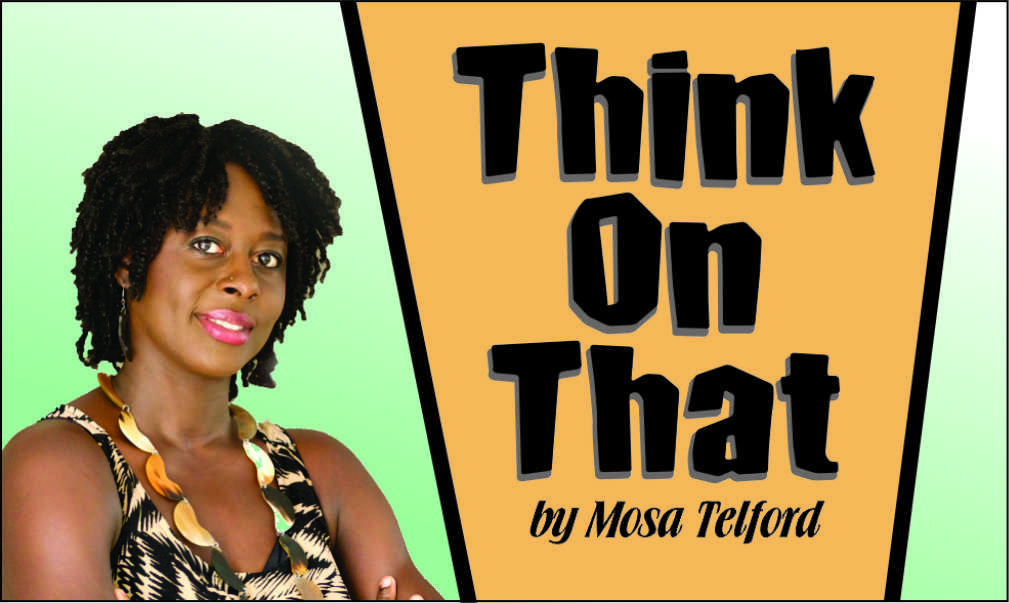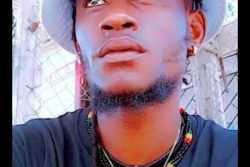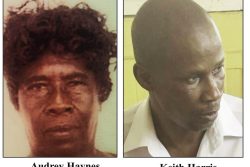According to data from the United Nations, one of every two Guyanese women between the ages of 16 and 64 has experienced intimate partner violence at least once in their lives. The global average is one in three women, which is about 30% but one in two accounts for 55% of Guyanese women, according to the United Nations.
The abused woman is not only the one who bears the marks of her violation. She is not only the one whose sad eyes are bordered by black and blue, unafraid to let the world see what the hands of a coward has done. She will dress her wounds and every time she oils her body, she will take time around the scars that are memories, reminders of the current angst and sometimes, the forecast of that which would lead to her body being frozen and buried.
The abused woman is not only an uneducated woman, often emerged from the cages of poverty or neglect. She is not only one who would have been forced to run from home or would have had to fend for herself too soon. She is not only one who has borne children for a man who believes her place is in the home and because of her religious beliefs or shrinking self-esteem, she is quiet when he verbally abuses her or takes the blows without fighting back. She is not only one who stares into the eyes of her children and pretends that her anguish does not exist because they made beautiful children who deserve a two-parent home.
The abused woman is not only the one who believes that she has no power or money and so she is trapped. She is not only one who is afraid to leave because she believes she cannot raise children on her own. She is not only that woman who believes that the abusive man will change or one who believes that by her prayers or other spiritual practices a spell can be cast, and he will be the perfect man she dreams of.
The abused woman is all that has been stated, but she is also one who appears empowered and in control. She is also one who chooses to cover her scars with her garments and makeup and when she massages her body, pretends she does not see her scars. She is also a career woman whose garments are immaculate, and the entrepreneur who works tirelessly to make sure she is successful. She is the woman who publicly displays affection for the man she loves. She is constantly engaged in creating the impression that they are “couple goals”. She is the one who cries in silence. She is the one who despite having all the resources to leave the relationship stays because she is in love, does not want to meet and know someone else, cannot imagine her life without him, or she is afraid of the repercussions.
When an abusive man has spent time to isolate, dominate and taken every sense of the self-worth of the abused, the prison he has built around her sometimes may seem impenetrable. She holds on to the memories and glimpses of when things are good and deludes herself into thinking that the fairytale part of their relationship is the part that will outlast the terror.
Recently, I was reminded about the women who hide their pain. I was reminded that we cannot judge those who are abused. It is a social issue that is quiet and loud but too many women believe that they are voiceless and cannot escape because of how they have been conditioned.
I was also reminded that though one may advocate for women to speak up or for the community to intervene, sometimes when a witness is faced with an abusive situation, they can feel disempowered and unsure of what to do. And sometimes it is not because one is afraid to speak, but because one is afraid of what the response will be from the abused and abuser. One can question whether they will be jeopardizing their safety or if the ties will be severed.
I have never stood in the shoes of an abused woman, but for the last few months having been focusing on gender-based violence, week after week, as one of the writers of the characters in the radio serial Merundoi. With the characters being so real, writing their stories has reinforced for me the need for constant intervention in Guyana.
But this week I was also reminded that theory does not always result in practice. I felt conflicted when I was reminded that perhaps it is easier when art imitates life than when it is life imitating art. I felt like I did not have permission to hold someone’s hands and offer words of comfort though I wanted to. I felt that I did not have permission to tell them that they deserve better.
We do not have to remain silent when we witness violence. Even if we do not speak directly to the abused or abuser, we can speak to them through the agencies or professionals.
It is encouraging to see that we are doing more to end gender-based violence in Guyana. Domestic violence is a part of the police curriculum. Special rooms have been established at police stations where reports can be made. Last year CopSquad2000 was established to tackle violence. It is a collaboration between the Ministry of Human Services and Social Security and the United Nations Population Fund and part of the objective was for 2,000 police officers to be trained by the end of last year and to ensure that at least one police officer at every police station would have undergone specialised training on how to deal with domestic violence.
There are various organisations working on behalf of women. Whether it stems from governmental or non-governmental organisations, all hands are needed on deck. Whether we chose to advocate for change, whether we speak directly to the abused and abuser, whether we simply call the Domestic Violence hotline for advice, we must do something because for too long it has been the inaction of many of us that has contributed to the ongoing issues with violence.
The abusive man is not only a raucous man. He is not only one who curses and abuses drugs and alcohol. He is not only one who is a criminal. The abusive man is also quiet, educated, dresses nicely, is soft spoken, has a beautiful smile, but in the twinkle of an eye can transform from prince to beast.








